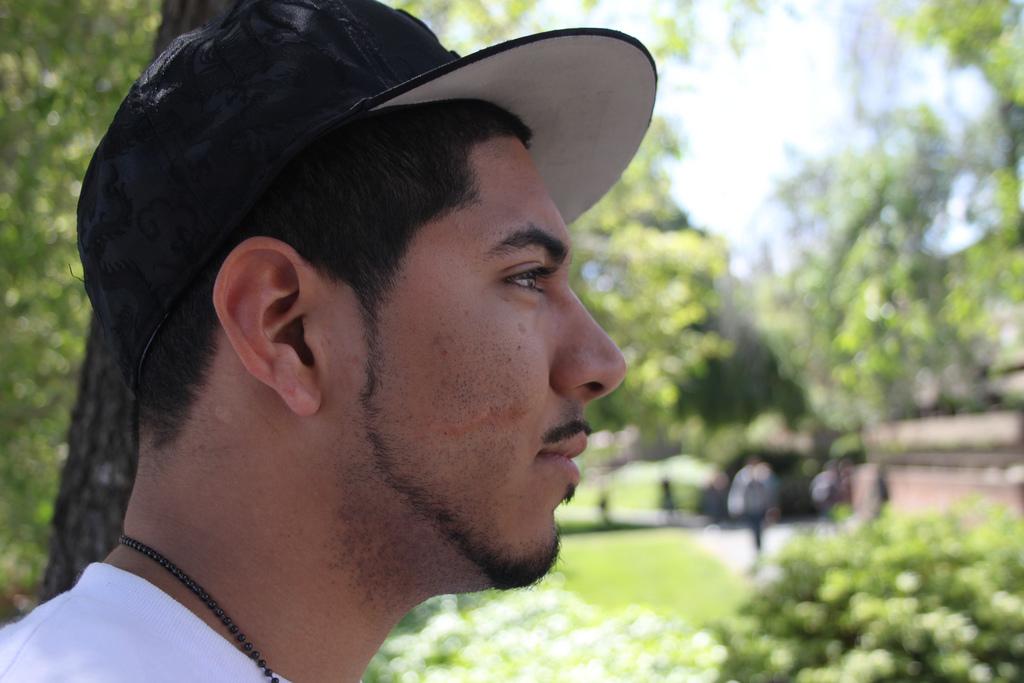On Jan. 17, 2007, when most students were returning to campus after winter break, Brian Vargas was a Marine Corps team leader in Hitt, Iraq, who made life and death decisions every day.
“I was a kid – but I became a man real quick,” he says today.
On that day in January, his fire team was observing enemy activity from a rooftop when they came under attack. Soon Vargas heard the familiar cracking of AK-47s from within the house.
His men under attack, Vargas grabbed the squad automatic weapon (SAW) and ran to the rooftop.
Fire was coming from an enemy sniper in a house across the street, he recalls.
Moments later, blood gushing from his face, Vargas heard his fellow Marines yelling, “Vargas is hit! Vargas is hit!”
“When you’re over there, you don’t expect to come back wounded,” he says. “You think you’re either going to live or die.”
An enemy sniper had shot him from hundreds of meters away with a Soviet made Dragunov sniper rifle, a common weapon used by Iraqi insurgents and foreign terrorists.
The bullet went through his cheek and split his face in half, hitting his earlobe on the way out.
The bullet also hit Vargas’ SAW ammunition, causing it to explode. Shrapnel bored into his hand, face, and eye, one piece of metal cutting his tongue in half.
“When I fell back I couldn’t hear or see for a minute,” Vargas recalls. “I sat up, and the crack of another sniper shot was so close it brought my hearing back.”
“It felt like a truck had just hit me in the face,” he says. “I opened my eyes and just saw blood pouring out of my face and hand.”
Vargas remembers telling himself, “Right now, in this exact spot, I am not going to die.”
His Marines killed the sniper and Vargas was flown out on a helicopter.
He was treated for his injuries at the Wounded Warrior Regiment at Camp Pendleton, Calif., where he was diagnosed with traumatic brain injury and had to relearn how to read and write.
“I felt stupid matching pictures to words,” he says.
Despite this, Vargas has thrived at DVC, passing classes with outstanding grades.
“For most kids, [college] is the next step,” Vargas says. “To me, it’s a privilege. Kids look at this like it’s mandatory, and they don’t take school seriously. That’s frustrating to me; I put my all into it.”
“In the Marine Corps you are demanded to have responsibility and discipline,” Vargas says. “I love the individuality at DVC. There is a lot more freedom.”
Vargas, a first semester student at DVC, plans to major in psychology.
“I want to help people and other wounded veterans,” he says.
Vargas had accepted Jesus as his savior shortly before he deployed to Iraq and is certain this is who brought him home alive.
“My reminder is right there on my face.”
Contact Chris Clark at cclark@theinquireronline





































































